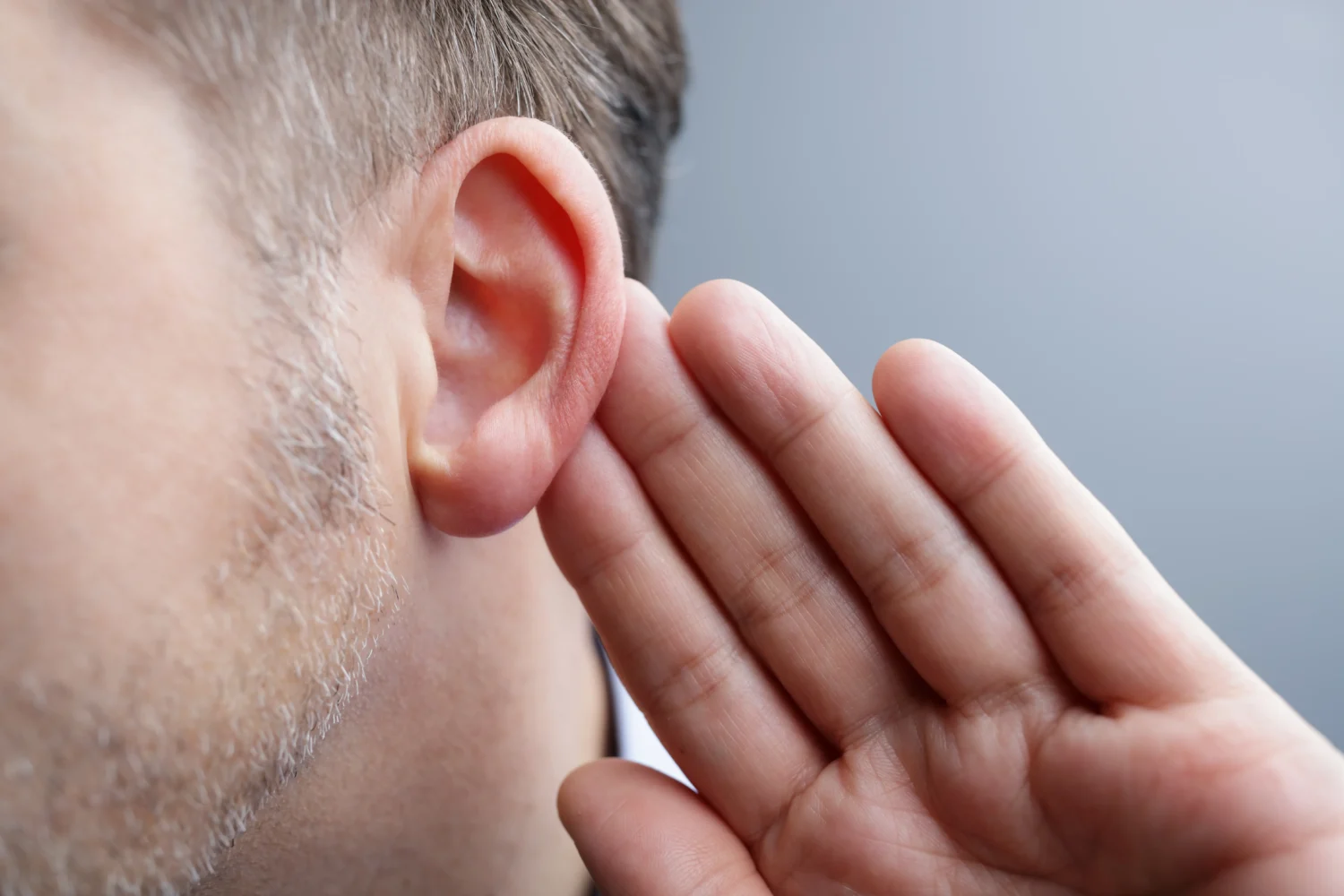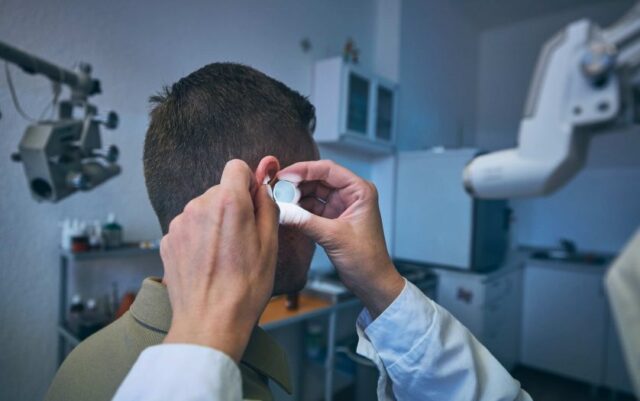
Tepezza, a medication primarily used for the treatment of thyroid eye disease (TED), has recently faced scrutiny due to reported cases of hearing loss among some patients. This concerning side effect has raised questions about the potential causes and mechanisms behind Tepezza-related hearing loss.
In this article, we will delve into the subject, exploring the case studies and findings that could contribute to this adverse reaction and shed light on the ongoing research in this area.
Understanding Tepezza and Its Purpose

Thyroid eye disease (TED) is an autoimmune condition characterized by unpredictable inflammation that can profoundly affect vision, well-being, and physical appearance. In 2020, the FDA approved teprotumumab as the first and only medication designed specifically for treating TED.
Administered intravenously every three weeks for a total of eight doses, teprotumumab has exhibited promising outcomes in Phase 2 and 3 clinical trials. These studies have demonstrated significant advancements in reducing proptosis (bulging of the eyes), alleviating double vision, mitigating inflammation in the surrounding tissues, and enhancing the overall quality of life for individuals with active moderate to severe TED.
Reports of Tepezza-Related Hearing Loss
Despite the effectiveness of Tepezza (teprotumumab) in improving eye-related symptoms, reports of potential side effects, including hearing loss, have prompted further investigation.
The first Tepezza hearing loss lawsuit was filed by Daniel Weibel in August 2022, in the U.S. District Court for the Northern District of Illinois. Weibel claims to have experienced permanent hearing loss after receiving Tepezza injections from June 2020 to September 2020 for the treatment of thyroid eye disease.
In his lawsuit, Weibel alleges that Horizon Therapeutics, the manufacturer of Tepezza, misrepresented the hearing problems observed in their clinical trials as temporary or of limited duration.
He argues that the company failed to conduct sufficient research into the potential permanency of the recorded hearing loss cases during the trials. Additionally, Weibel claims that Horizon Therapeutics neglected to adequately warn patients and regulatory authorities about the serious and irreversible hearing loss and/or tinnitus that can be caused by Tepezza.
As a result, multiple lawsuits related to Tepezza hearing loss have been consolidated into a multidistrict litigation (MDL) case.
The Mechanism of Tepezza-Related Hearing Loss

Tepezza’s mechanism of action involves blocking the Insulin-like Growth Factor-1 Receptor (IGF-1R), a protein that plays a crucial role in the growth and maintenance of cells responsible for transmitting sound waves in the inner ear. By inhibiting IGF-1R, Tepezza interferes with the function of sensory cells essential for hearing, potentially leading to permanent cell damage and the development of hearing issues.
Tepezza is specifically designed to target and reduce inflammation and swelling in cells affected by Thyroid Eye Disease (TED) by inhibiting IGF-1R. However, it is worth noting that the Tepezza warning label acknowledges the absence of formal studies evaluating the drug’s molecular, biochemical, and physiological effects or actions.
Exploring the Association between Tepezza and Hearing Loss: Case Reports and Research Findings

During the early stages of Tepezza’s development, the manufacturer identified a connection between the drug and hearing problems. Two distinct clinical studies conducted during this time revealed that approximately 10% of users experienced hearing loss or other hearing-related issues.
In the aftermath of these clinical trials, numerous peer-reviewed medical journals have published studies and articles emphasizing the potential risk of hearing loss associated with Tepezza. These studies and evidence have provided substantial support to the notion that Tepezza’s side effects can lead to hearing loss.
A study by Stanford University
A study conducted by researchers at Stanford University, published in the Journal of the Endocrine Society, examined the side effects of Tepezza on 26 patients who received a minimum of four infusions. The study found that 65% of the patients reported experiencing hearing problems after taking Tepezza.
Among those, 23% reported hearing loss, 27% developed tinnitus (ringing in the ears), 12% experienced a sensation of their ears being plugged, and 29% reported a condition called autophony (hearing one’s own voice unusually loud).
A Report by The Annals of Otology, Rhinology, and Laryngology
A report published in The Annals of Otology, Rhinology, and Laryngology highlighted a case involving a 61-year-old woman with Grave’s disease (another name of TED) who experienced significant hearing loss after receiving Tepezza treatments.
The patient, who had been treated with teprotumumab, developed bilateral hearing loss, sound distortion, and tinnitus. Despite discontinuing Tepezza and receiving oral corticosteroid treatment, her hearing loss symptoms did not improve even after four months.
Researchers noted that this case represents one of the first instances where ototoxicity was observed in relation to teprotumumab treatment.
American Journal of Ophthalmology Study
Although comprehensive data on the long-term hearing loss side effects of Tepezza is limited, a study published in the American Journal of Ophthalmology shed light on the recovery rates of patients who experienced subjective hearing loss or decreased word comprehension. The study revealed that only 45.5% of these patients made a full recovery after eight months of discontinuing Tepezza infusions.
Additionally, during the same follow-up period, around 20% of patients continued to experience autophony and nearly 10% of patients still reported symptoms of an ear plugging sensation.
These findings underscore the persistence of certain auditory symptoms even after discontinuing Tepezza treatment, highlighting the need for further investigation into the long-term impact of Tepezza on hearing function.
Conclusion

Exploring the association between Tepezza and hearing loss is a critical step in understanding the potential risks and benefits of this FDA-approved medication. Case reports and research findings highlight the need for further investigation into the ototoxicity of Tepezza and the underlying mechanisms contributing to hearing loss.
By fostering awareness, conducting additional research, and prioritizing patient safety, healthcare providers can make informed decisions and ensure the well-being of patients undergoing Tepezza treatment for Thyroid Eye Disease.









